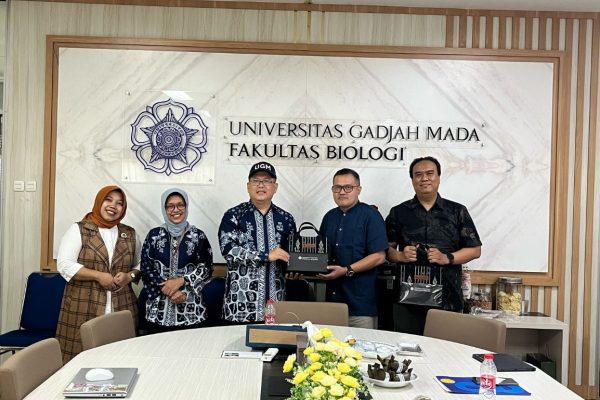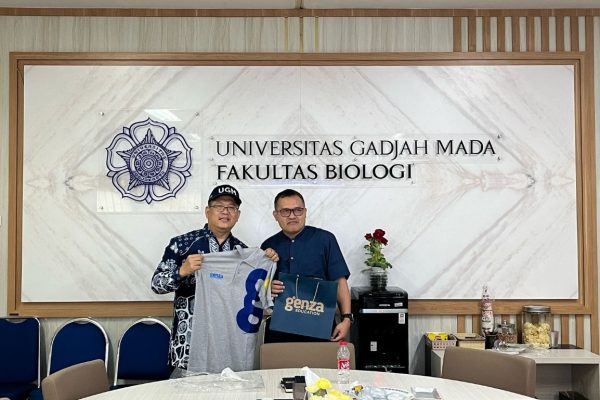by the PkM-MBKM Team of the Faculty of Biology UGM
Community Service Wednesday, 29 October 2025
by the PkM-MBKM Team of the Faculty of Biology UGM
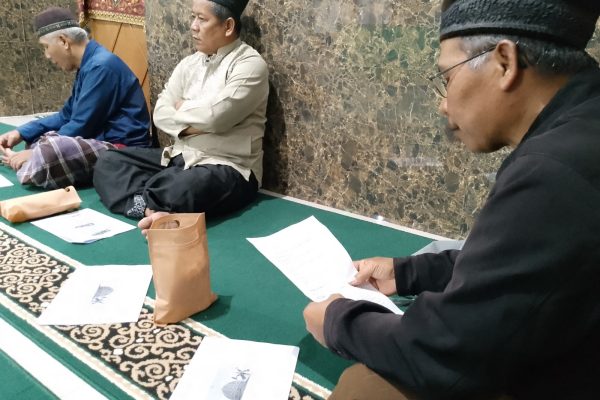
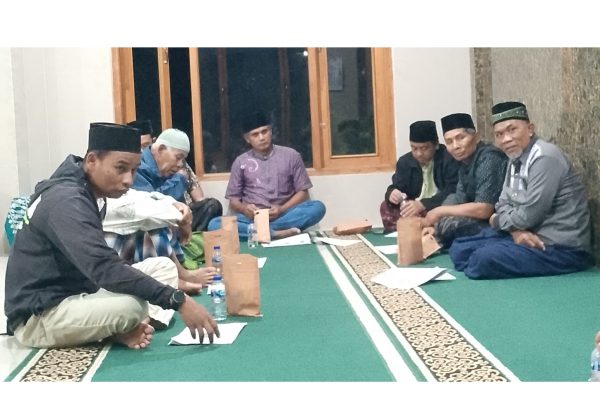

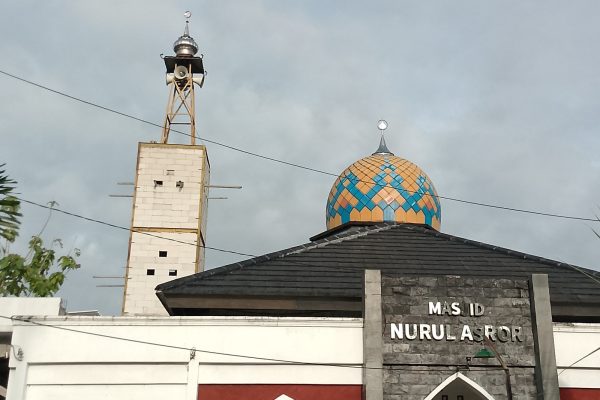
News ReleaseStudent Activities Wednesday, 8 October 2025
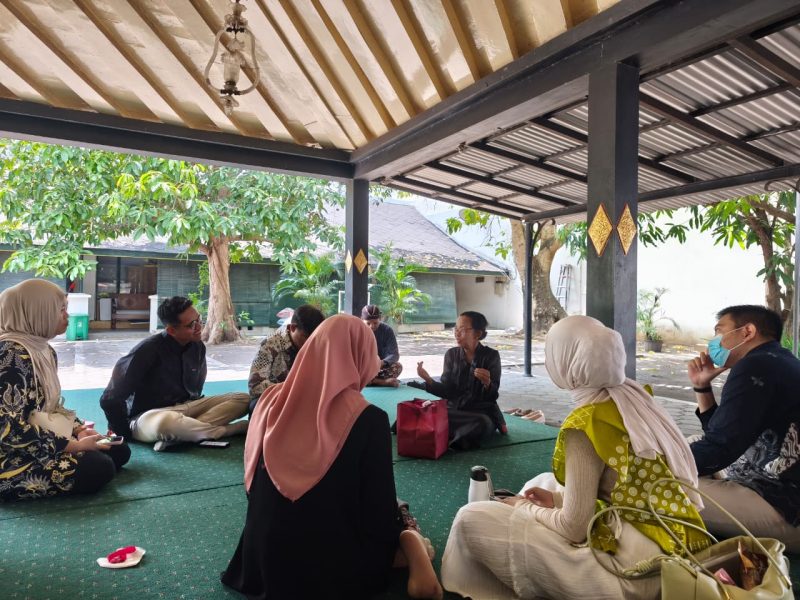
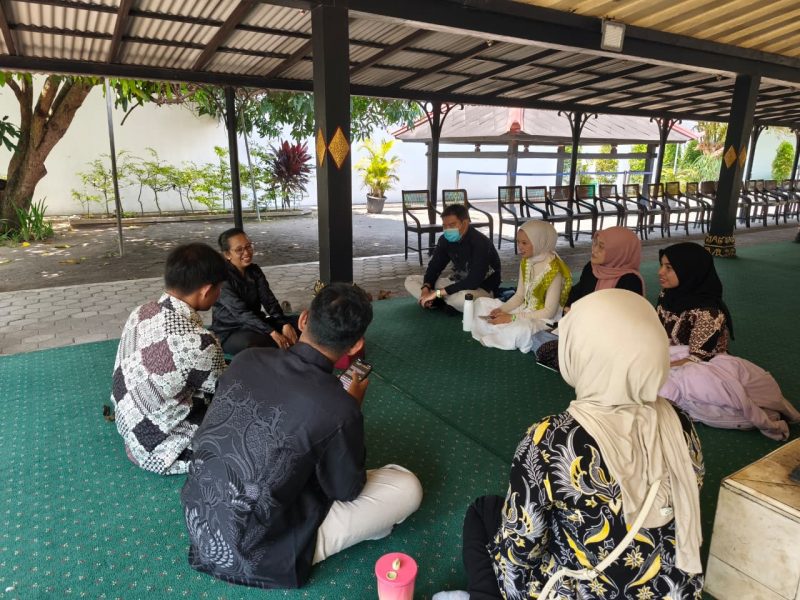
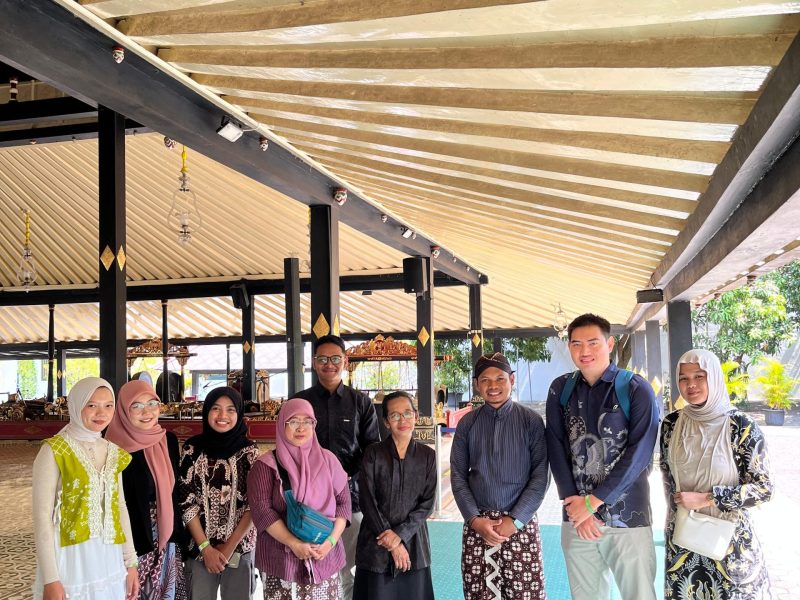
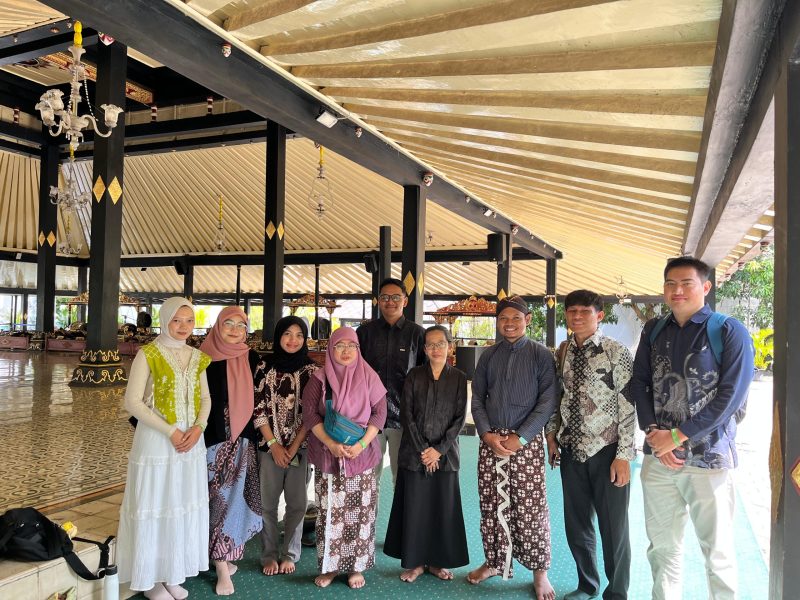
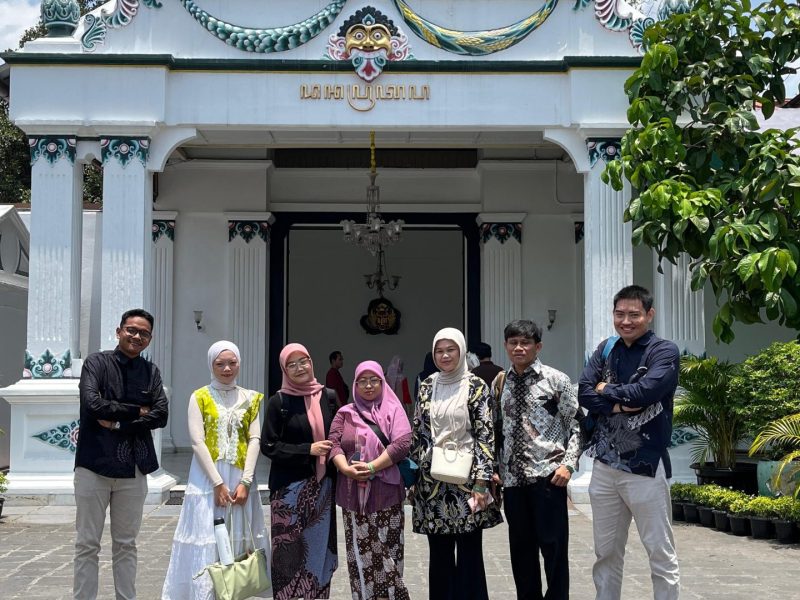
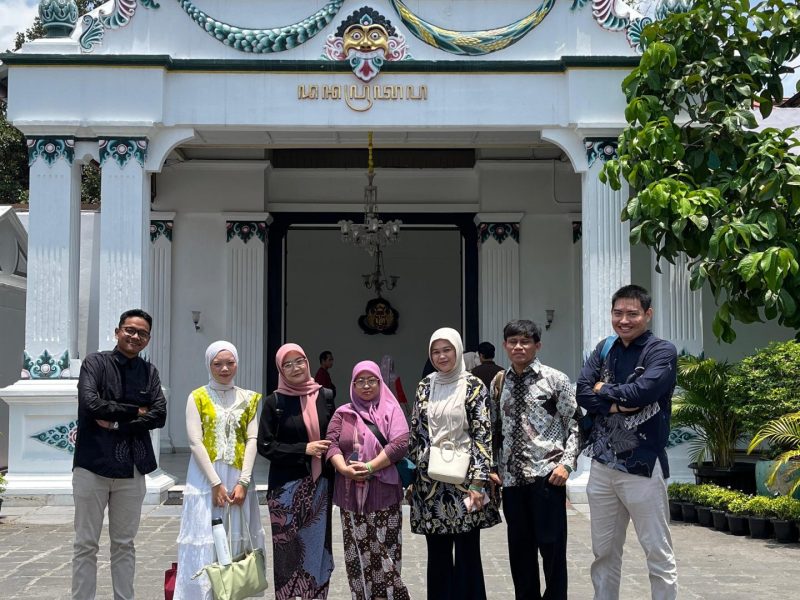
Banyan Tree (Beringin): A Symbol of Sacredness and Life Sustenance
Jambu Dersana: A Symbol of Serenity and Inner Peace
Gayam Tree: Strength and Balance
Sawo Kecik: Patience and Virtue
Kepel: A Symbol of Purity, Grace, and the Soul of a Warrior
News Release Monday, 22 September 2025
Yogyakarta, 19 September 2025 – For the first time, the Faculty of Biology, Universitas Gadjah Mada (UGM), staged the spectacular Biothoprak 2025 art performance as part of the celebration of its 14th Lustrum and 70th Anniversary. Held in front of Al-Hayat Mosque at the Faculty of Biology, the performance brought to life the classic folklore “Ande-Ande Lumuten”, creatively adapted with modern elements and rich moral values.
Biothoprak is a traditional Indonesian theatrical art, and this year the Faculty of Biology UGM successfully presented a remarkable collaboration between lecturers, students, staff, and alumni. The performance became a platform for intergenerational togetherness within the academic community, reflecting the spirit of kinship that has long been a hallmark of the Faculty. “Through Biothoprak, we aim not only to provide entertainment but also to convey the importance of culture, unity, and the noble values of our nation. This year, we chose the play Ande-Ande Lumuten, which carries meaningful messages of honesty, loyalty, and kindness,” said Prof. Dr. Budi S. Daryono, M.Agr.Sc., Dean of the Faculty of Biology UGM.












The Ande-Ande Lumuten performance was enhanced with modern stage design, creative costumes, and multimedia technology, offering the audience a refreshing theatrical experience. The enthusiasm of the audience was evident, with more than 1.000 onsite attendees, including lecturers and their families, staff members with their families, retirees, alumni, students, and the general public. In addition, hundreds of viewers joined online via the Faculty of Biology’s YouTube channel. The celebration was further enlivened with exciting door prizes and traditional Jogja culinary treats, including angkringan dishes and live-cooked noodles.
As part of the 70th Anniversary of the Faculty of Biology UGM, Biothoprak 2025 was not only a cultural performance but also a realization of the values of the Sustainable Development Goals (SDGs), particularly: SDG 4: Quality Education – through collaborative, intergenerational learning, SDG 11: Sustainable Cities and Communities – by preserving and revitalizing local culture, and SDG 17: Partnerships for the Goals – through synergy between the academic community, alumni, and society.
The event was warmly received by the academic community, alumni, and the wider public, serving as a vibrant closing highlight of the 14th Lustrum and 70th Anniversary of the Faculty of Biology UGM, held under the overarching theme “Biology for Environment and Humanity.”
News Release Tuesday, 26 August 2025
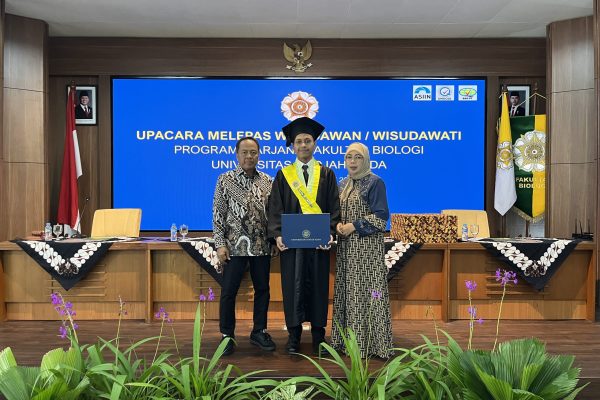
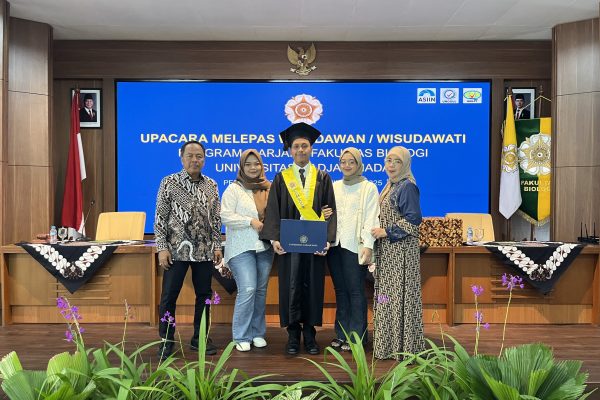
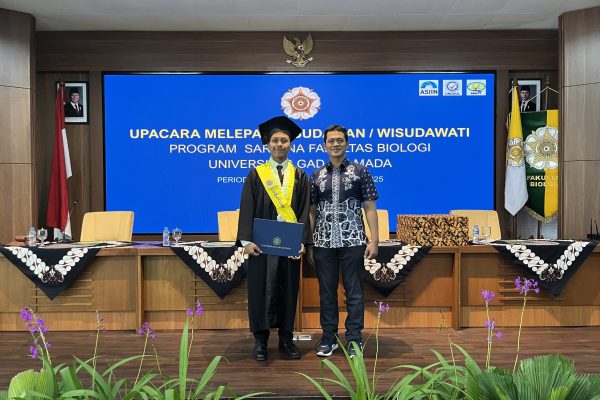
Reflecting on his achievement, Sabut expressed his gratitude:
News Release Wednesday, 23 July 2025
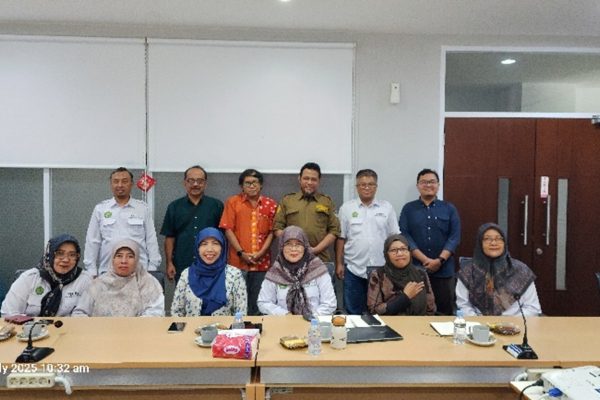
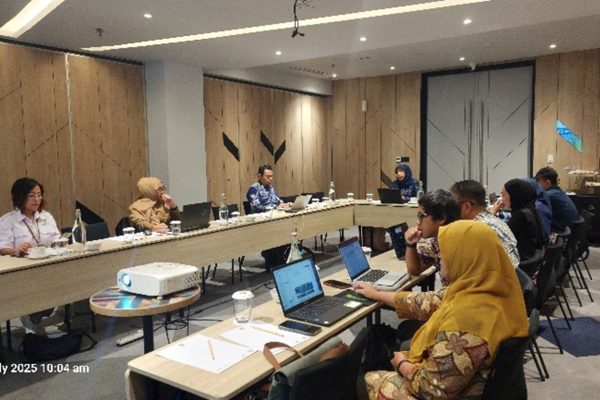
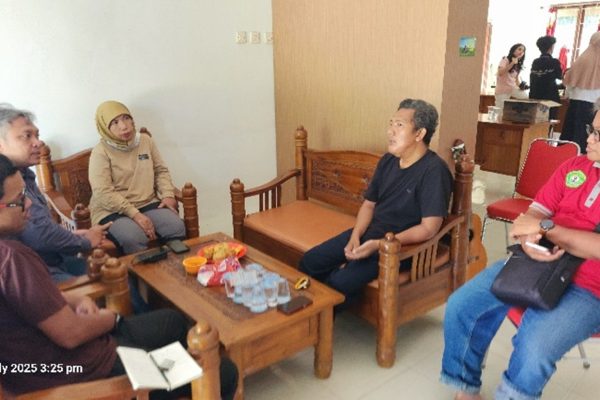
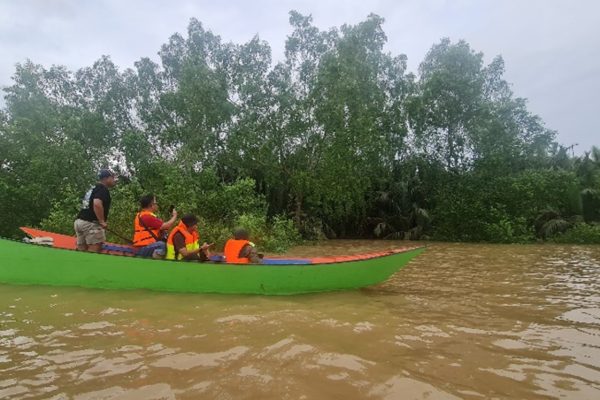
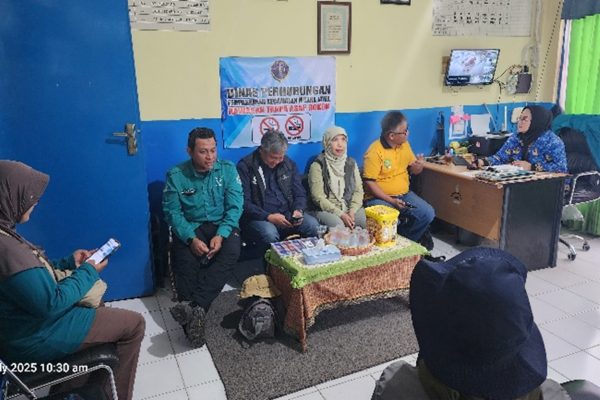
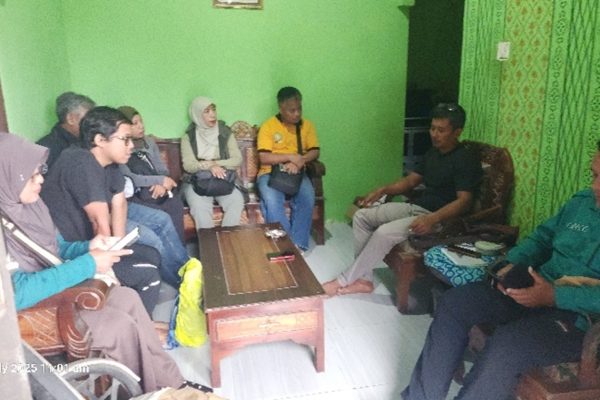
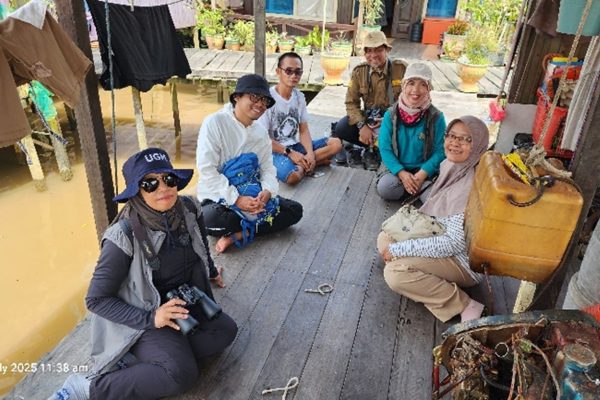
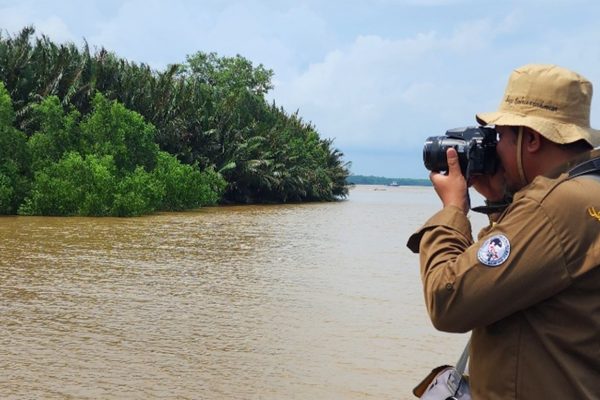
Sustainable Development Goals points:
11: Sustainable Cities and Communities
12: Responsible Consumption and Production
13: Climate Action
14: Live Below Water
15: Live on Land
Community Service Saturday, 19 July 2025
The Community Service program of the UGM Faculty of Biology was held again on Friday, July 18, 2025, at the Balai Dusun Belimbing Sari in Caturtunggal Village, Depok, Sleman. Under the banner “Mosquito Vector Control through Biological Approaches and the Use of Essential Oils,” the event welcomed 35 enthusiastic local PKK members to participate in a series of engaging lectures and hands‑on sessions.
The Desa Mitra Caturtunggal teaching team included Dr. Dra. Rr. Upiek Ngesti W.A., B.Sc., DAP&E, M.Biomed (Animal Systematics Laboratory); Woro Anindito Sri Tunjung, S.Si., M.Sc., Ph.D (Biochemistry Laboratory); Nur Indah Septiani, S.Si., M.Sc., Ph.D (Animal Structure & Development Laboratory); and Sari Darmasiwi, S.Si., M.Biotech., Ph.D (Microbiology Laboratory).
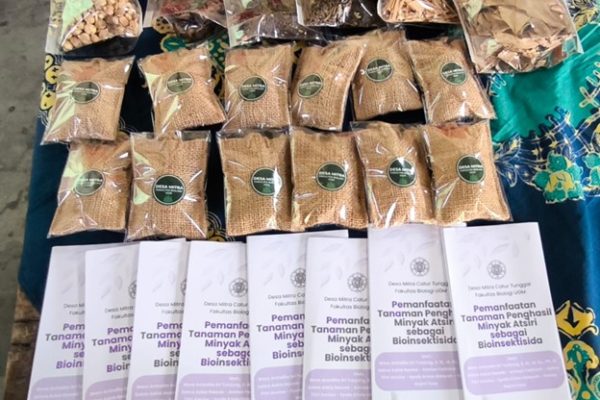
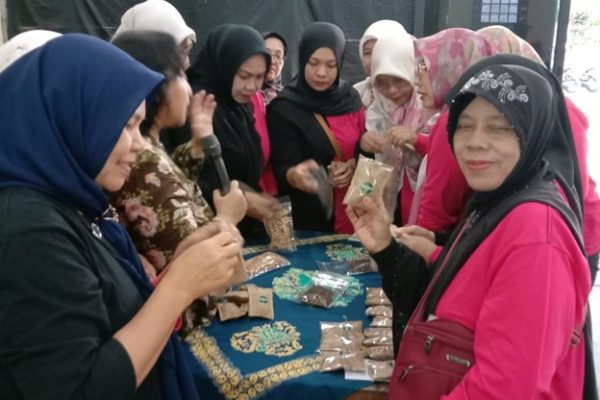
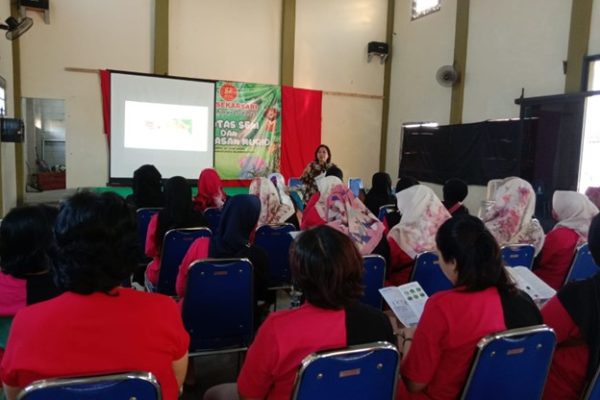
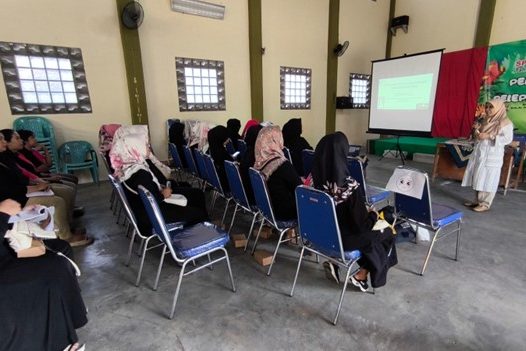
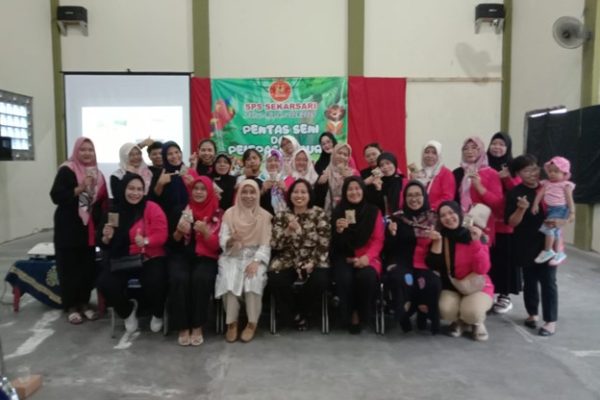
Dr. Dra. Rr. Upiek Ngesti W.A. opened the program with an in‑depth overview of mosquito species and the dangerous vector‑borne diseases they transmit—such as dengue fever and malaria—along with their habitat and life cycle. She detailed biological control strategies using fish and other predators, physical measures via the “3M” method (emptying, covering, burying), and preventive chemical fogging. Her comprehensive presentation gave participants a clear understanding of the need to integrate multiple control methods.
The second session, led by Woro Anindito Sri Tunjung, S.Si., M.Sc., Ph.D., dove into the use of essential oils as natural mosquito repellents. In a style both lighthearted and informative, Dr. Woro defined what essential oils are, introduced various plant sources—such as lemongrass, kaffir lime, and basil—and outlined two practical approaches: planting repellent species in home gardens and crafting natural room fresheners. Participants were keen to follow her simple distillation steps and discuss how to apply them at home.
The highlight of the day was the hands‑on workshop, where attendees created aromatic sachets from dried ingredients—clove buds and stems, star anise, and lemongrass—packaged in rustic burlap bags. These sachets proved easy to make, cost‑effective, and both decorative and functional as mosquito deterrents. Light conversation and sharing of tips on preserving the scent for longer added warmth and camaraderie to the event.
Through this activity, the Faculty of Biology UGM puts into practice its Tri Dharma of Higher Education, particularly community service, while also supporting the Sustainable Development Goals: SDG 3 (Good Health and Well‑being), SDG 11 (Sustainable Cities and Communities), and SDG 17 (Partnerships for the Goals). It is hoped that the knowledge and skills gained will foster sustainable mosquito control efforts in Dusun Belimbing Sari and strengthen the community’s environmental health.
News Release Friday, 18 July 2025
Singapore (July 16th), The RI-SING University Network Faculty Immersion Program is a collaboration between five leading universities in Indonesia (UGM, UI, ITB, IPB, and ITS) and five universities in Singapore: Nanyang Technological University (NTU), National University of Singapore (NUS), Singapore Management University (SMU), Singapore University of Social Sciences (SUSS), Singapore University of Technology and Design (SUTD), and Singapore Institute of Technology (SIT). This program aims to strengthen collaboration and build relationships between universities in Indonesia and Singapore. The Faculty Immersion Program held from July 14-16, 2025, at NTU Singapore, aimed to explore research and project collaborations between NTU and five leading Indonesian universities in the fields of food science, food security & agritech, and sustainability in the life and social sciences.
This program was well-planned and engaging, managed by NTU International Engagement, with a professional staff overseeing the program’s rundown. Twenty-five participants from five universities were invited to attend presentations and discussions with schools leaders at NTU. The first day was filled with introductions to the entire NTU International Engagement team, INSPIRASI (Associate Prof. Dalton Tay), and resource persons who would present research materials. The second and third days were filled by schools leaders, including: Prof. Md. Saidul Islam from the School of Social Sciences; Prof. Viswanathan S. from the Business School; Prof. Peter Preiser from the School of Biological Sciences; Prof. Yusuf Ali from Experimental Medicine; Associate Prof. Tan Lay Poh from the School of Materials Science and Engineering; Associate Prof. Janice Lee, Dr. Shawn Lum, Assistant Prof. Yi Wen Zeng, and Assistant Prof. Pierre Taillardat from the Asian School of Environmental Science. NTU also provided opportunities for program participants to visit the INSPIRASI Laboratory, the Vertical Farming Laboratory at Sky Green, the Botanical Garden of Singapore, the MSE Laboratory, and the Tropical Ecology Laboratory.
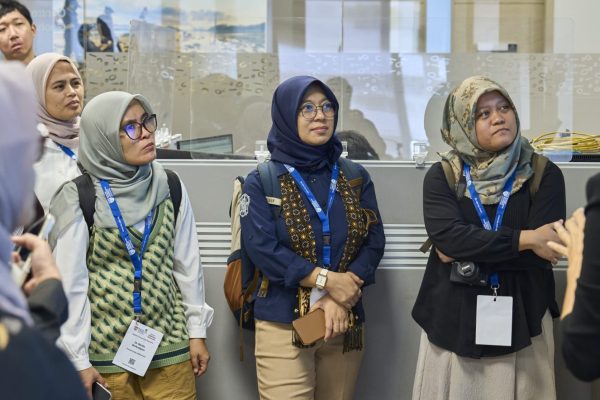
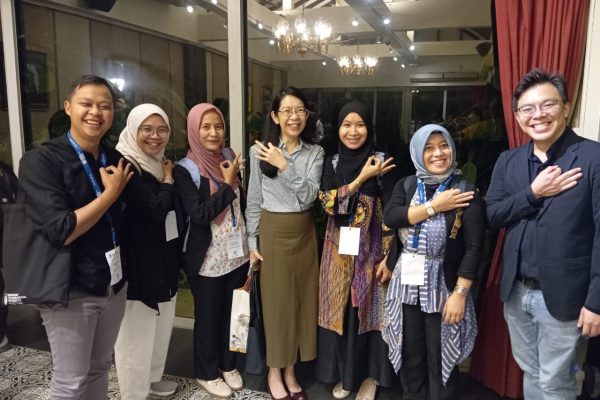
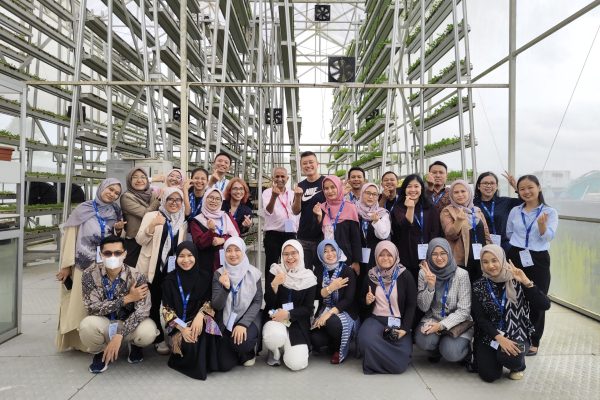
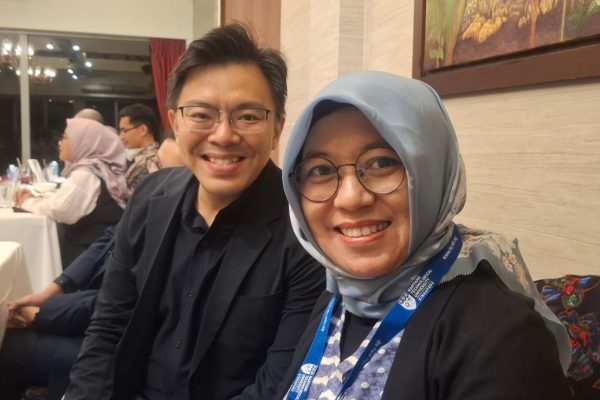
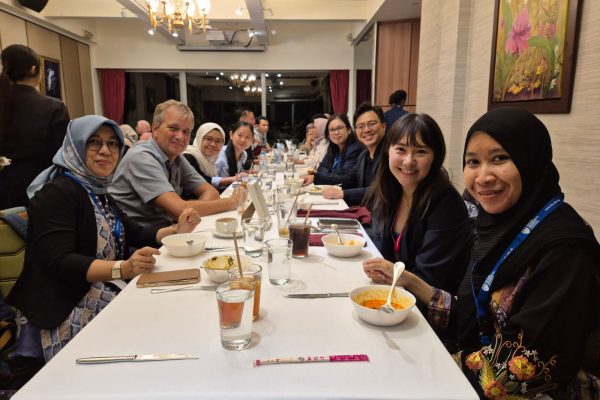
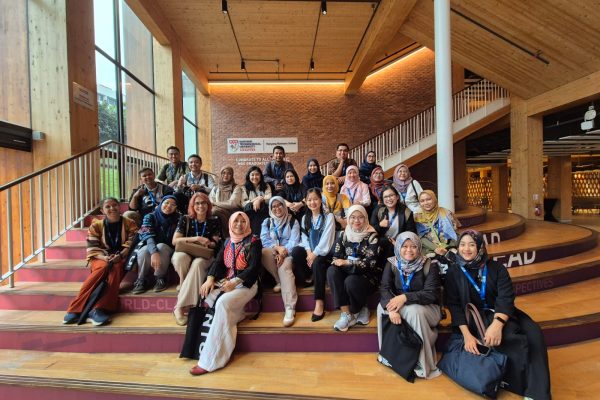
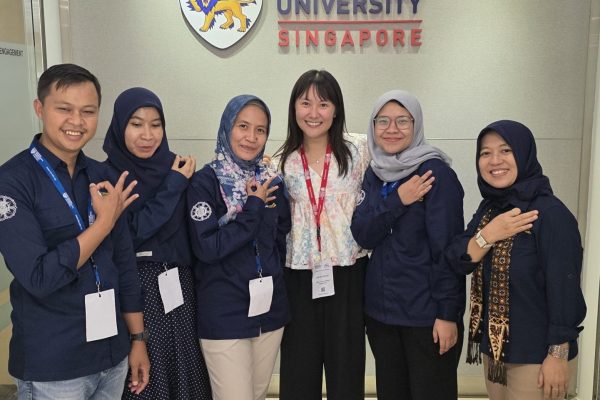
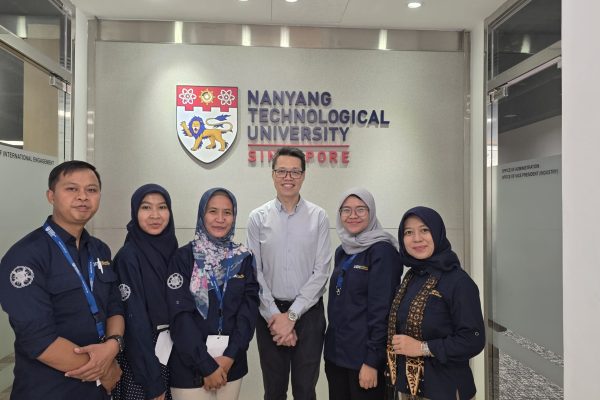
Universitas Gadjah Mada, as a member of the RI-Sing University Network Faculty Program consortium, sent five lecturers to this program, one of whom was Dr. Dwi Umi Siswanti, S.Si., M.Si. from the Faculty of Biology. Dwi, in addition to her expertise in sustainable agriculture, is also a member of the Faculty of Biology’s Organic Waste Management Task Force and a member of the Waste Management Team at PIAT UGM. Dwi took this opportunity to have an in-depth discussion with Prof. Dalton from INSPIRASI. INSPIRASI is a collaborative research and education program initiated by the Ministry of Education of Singapore (MOECRT) and the Indonesian Ministry of Research, Technology, and Higher Education for five raising universities: Universitas Gadjah Mada (UGM), University of Indonesia (UI), Bandung Institute of Technology (ITB), Institute of Technology Surabaya (ITS), and NTU. INSPIRASI focuses on smart and sustainable campuses, integrated sustainable waste management systems, and research into environmentally friendly campus technologies. The integrated sustainable waste management program overlaps with the organic waste management programs of the Faculty of Biology and PIAT UGM. Dwi explained that the waste management practices of the Faculty of Biology UGM and the utilisation of waste for organic farming are based on her research. INSPIRASI is interested in establishing a waste management collaboration at UGM.
The INSPIRASI program also offers undergraduate students from UGM to participate in an undergraduate immersion program, a program conducted at both universities. The first three years of study are conducted at UGM (the home university), followed by one year at NTU, resulting in a degree from UGM. This program can be continued with a Postgraduate Immersion program, which involves students adding a year at NTU and earning a Master’s degree from NTU. The NTU Doctoral Program (PhD) also accepts students from INSPIRASI members through two scholarship schemes: the LPDP-NTU PhD Scholarship, which awards 30 doctoral students per year, and the NTU PhD scholarship scheme.
Prof. Preiser from the School of Biological Sciences is offering research collaborations in the molecular mechanisms by which malaria parasites adapt to environmental change and research in food security. Meanwhile, Prof. Jennice Lee and her team are offering research collaborations in biodiversity, peatland restoration, and sustainable agriculture. Furthermore, Prof. Pooi See Lee, NTU’s Vice President of International Engagement, stated, “We sincerely hope this program will foster research collaborations between NTU and five leading universities in Indonesia.” Wanda Preiser, NTU’s Head of Office International Engagement, added, “If you contact one of our researchers, please let us know so we can assist you.” “We will report the results of this meeting to our Dean and hope for research and project collaboration with NTU, particularly regarding waste management at UGM,” Dwi concluded in response to Wanda’s request.
This faculty immersion program supports SDGs 3 (Good Healthy and Well Being), SDG 4 (Quality Education), SDG 7 (Affordable and Clean Energy), SDG 10 (Reduced Inequality), SDG 11 (Sustainable Cities and Communities), SDG 12 (Responsible Consumption and Production), and SDG 17 (Partnerships for The Goals). (DUS)
Community ServiceNews Release Wednesday, 16 July 2025
Wukirsari, Cangkringan – June 19, 2025
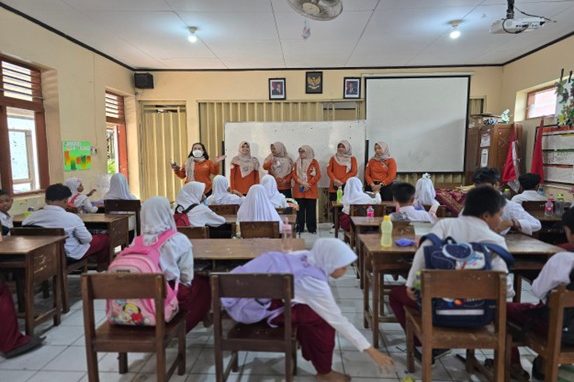
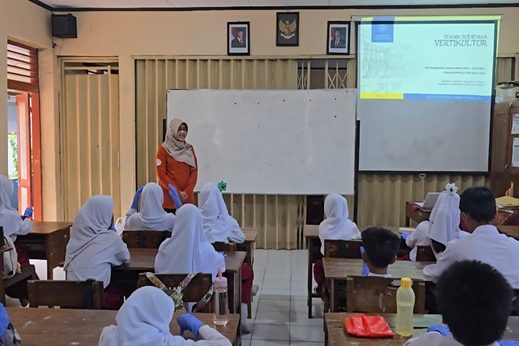
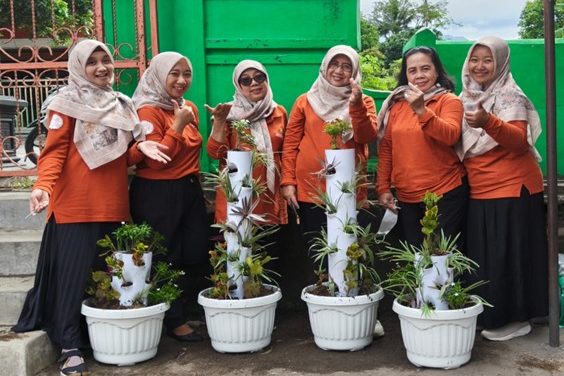
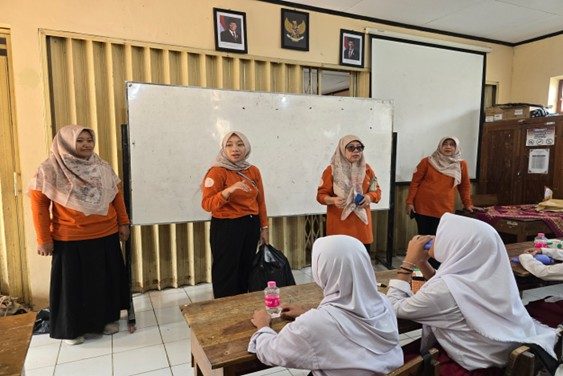
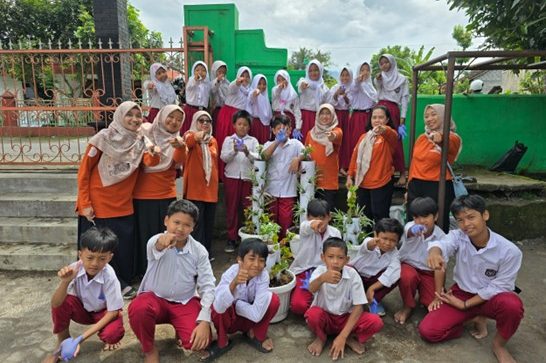
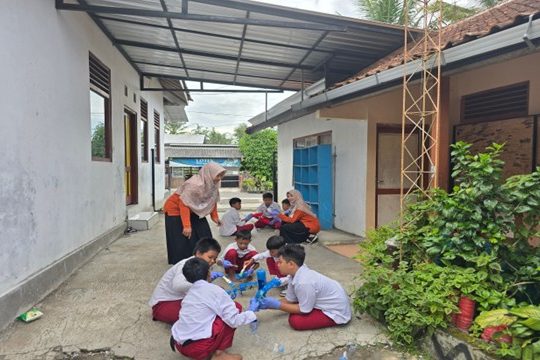
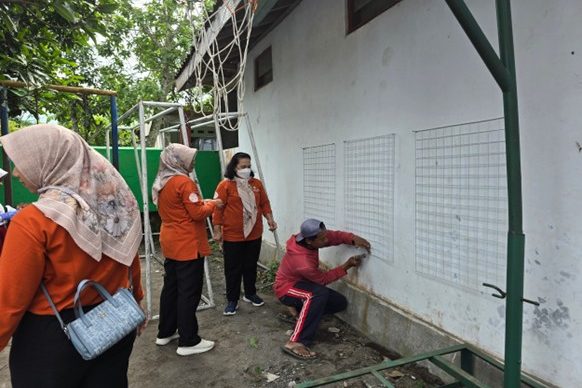
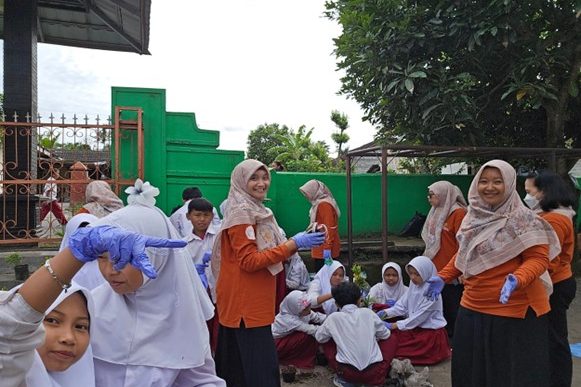
News Release Tuesday, 1 July 2025
Yogyakarta, June 30, 2025
The Faculty of Biology, Universitas Gadjah Mada (UGM), officially launched the International Summer Course on Sustainable Fisheries and Marine Biodiversity Conservation through a warm and welcoming courtesy dinner held on Monday, June 30, 2025, at Ikan Bakar Cianjur (IBC) Restaurant, Palagan, Yogyakarta. This event marked a significant occasion in welcoming seven students from the University of Technology Sydney (UTS), who will participate in a 26-day program filled with academic and cultural activities in and around Yogyakarta. This program is sponsored by the New Colombo Plan.
The opening ceremony was attended by leaders from both UGM and UTS, including Prof. Dr. Budi Setiadi Daryono, M.Agr.Sc., Dean of the Faculty of Biology UGM; Dr. Eko Agus Suyono, M.App.Sc., Vice Dean for Research, Community Service, Collaboration, and Alumni Affairs; Dr. Tyas Ikhsan Hikmawan, Head of the Office of International Affairs (OIA) UGM; and Dr. Nur Indah Septriani, S.Si., M.Sc., Ph.D., Head of the OIA of the Faculty of Biology UGM. Representing UTS was Dr. Megan Murray, accompanying academic staff of the summer course. Also present were Dr. Wulan Rahmiati, M.Hum., Program Coordinator of INCULS UGM; Destina Kawanti, S.Si., M.IP., Head of Partnership and KKN Program Task Force at the Directorate of Community Service (DPkM) UGM. The event was also attended by student liaison officers (LOs) and organizing committee members from the Faculty of Biology, UGM, who will accompany the international guests throughout their stay.


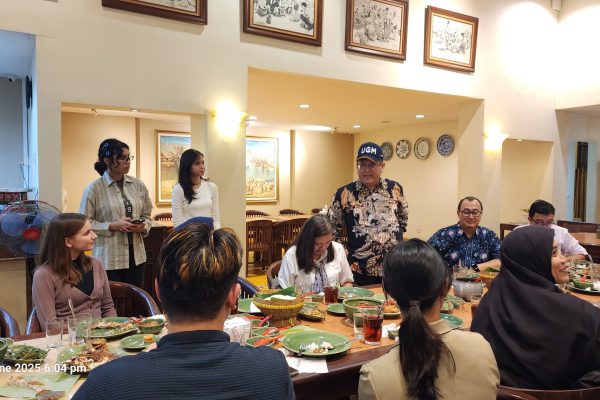
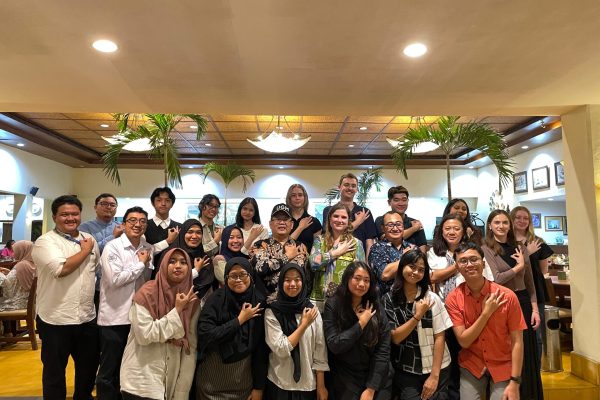
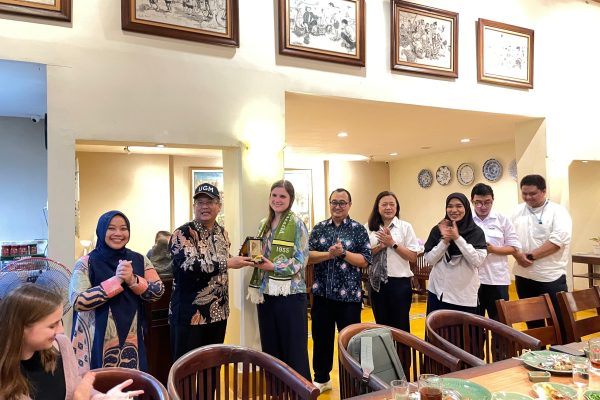
In his opening remarks, Dr. Eko Agus Suyono emphasized that this program reflects UGM’s strong commitment to promoting international collaboration that addresses sustainability issues, particularly in the areas of fisheries and marine biodiversity conservation. He also highlighted the importance of cross-cultural engagement and active student participation in community-based activities, in line with UGM’s holistic approach to education.
Dr. Wulan Rahmiati added that beyond academic content, the participants will receive contextual learning through Indonesian language classes and cultural immersion facilitated by INCULS. This language training serves as an important gateway to fostering meaningful interaction between participants and the local community.
Dr. Megan Murray expressed her sincere appreciation for the warm welcome extended by UGM. She conveyed that the UTS students are enthusiastic not only to learn academically but also to immerse themselves in the rich social, cultural, and natural landscapes of Indonesia, particularly its renowned biodiversity.
Closing the ceremony, Prof. Dr. Budi Setiadi Daryono expressed his hope that the program would serve as a platform for knowledge exchange, the strengthening of international networks, and the cultivation of cross-national awareness regarding environmental issues—especially those concerning marine and coastal ecosystems. He further emphasized the crucial role of youth in building a sustainable future through education, research, and community engagement.
Over the next month, participants will take part in various activities including Indonesian language classes at INCULS, community service projects in collaboration with UGM’s KKN program, online lectures by academic experts from institutions such as Universitas Gadjah Mada, University of Technology Sydney, Universiti Tun Hussein Onn Malaysia, Universiti Tunku Abdul Rahman, Chiba University, University of Leiden, University of the Philippines Los Baños, Universiti Malaysia Sabah, Universitas Hasanuddin, etc.The program also features field excursions to Porok Beach, permaculture training at Bumi Langit, visits to the Biology Museum, and cultural explorations to significant historical sites such as Prambanan Temple, Sojiwan Temple, Sonobudoyo Museum, the Yogyakarta Palace, Kotagede, the Royal Cemetery in Imogiri, etc.
The evening concluded on a warm and friendly note, symbolizing the beginning of a vibrant journey of cross-cultural and interdisciplinary learning that promises to enrich the academic and personal experiences of all participants.
This program also contributes significantly to the achievement of the United Nations Sustainable Development Goals (SDGs), particularly SDG 4 (Quality Education) through cross-cultural learning and global student capacity-building; SDG 14 (Life Below Water) by fostering understanding and conservation of marine biodiversity; SDG 17 (Partnerships for the Goals) through international collaboration between UGM and UTS; and SDGs 11 (Sustainable Cities and Communities) and 13 (Climate Action) through community service, permaculture field visits, and efforts to raise awareness on sustainable natural resource management. [Nur Indah Septriani]
News Release Friday, 20 June 2025
